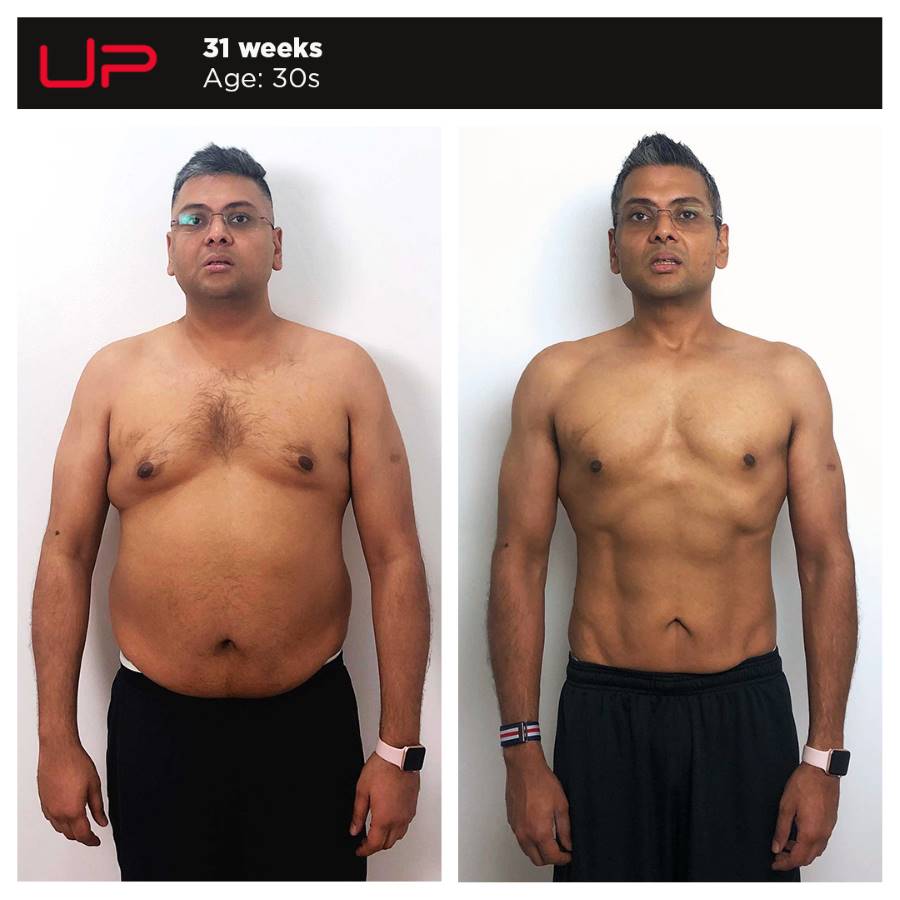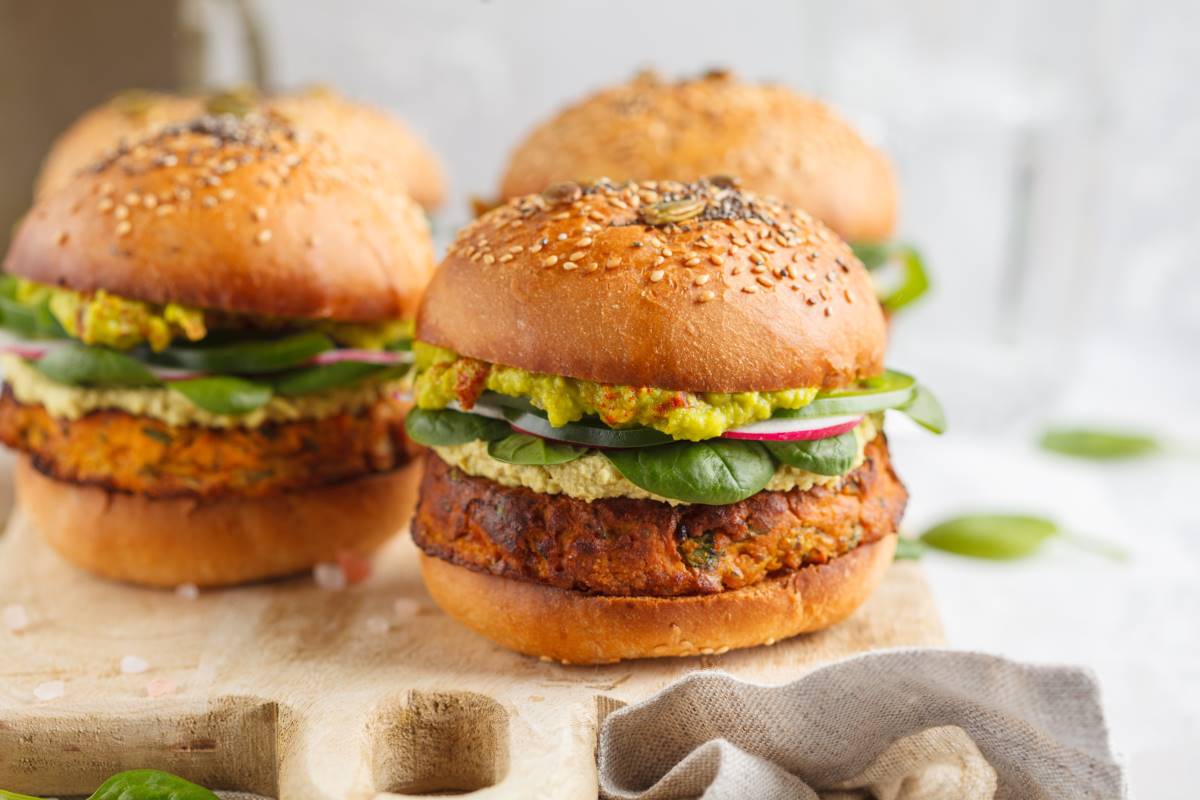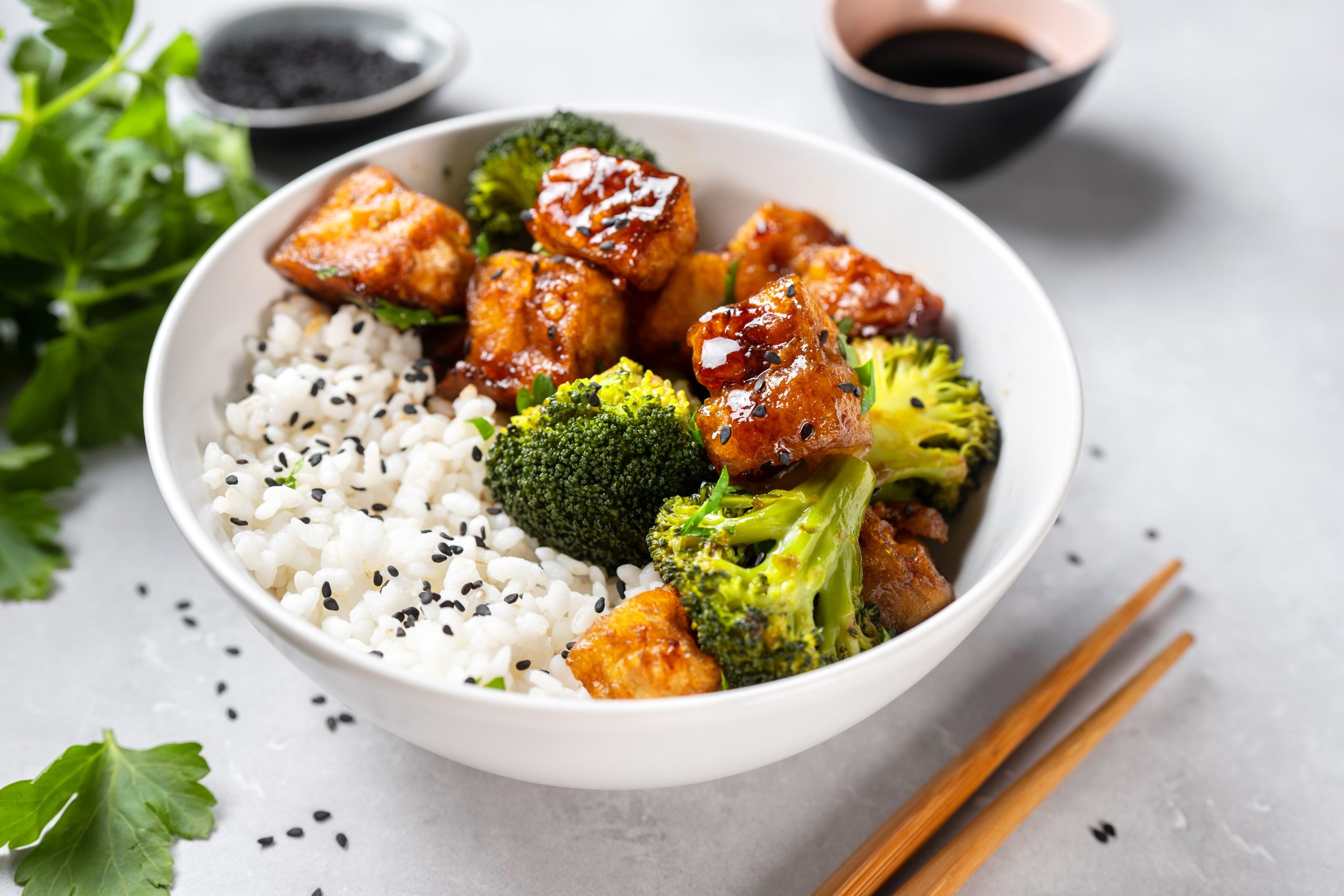Going Meat-Free: Game Changer Or Not Worth The Hype?
The growing focus on climate change, awareness of the negative health outcomes of modern Western diets and renewed attention on animal welfare has resulted in increasing numbers of people going partly or entirely meat-free.
However, while there are undoubtedly several health benefits associated with decreasing intake of highly processed animal products, meat-free diets also bring some complexities and downsides. In this month’s diet review, we deep dive into the science to help you weigh up all the factors regarding meat-free diets.

What Does Meat-Free Mean?
The term ‘meat-free’ is an umbrella term to describe diets that exclude meat and animal products to varying degrees, such as:
Veganism
Restricts meat and animal product consumption entirely to avoid all forms of animal exploitation and cruelty. This includes the consumption of animal-derived products, such as dairy, meat, honey, and materials such as leather.
Vegetarianism
Excludes meat and fish but may include some animal products, such as eggs or dairy. Variations include:
- Lacto-ovo vegetarianism allows eggs, and dairy, such as milk.
- Ovo-vegetarianism includes eggs but not milk-derived dairy products.
- Lacto-vegetarianism permits milk-derived dairy products but does not include eggs.
Pescetarianism
Excludes meat and poultry but includes fish and/or seafood, dairy products, and eggs. Read our definitive guide to the pescetarian diet here.

There may be many reasons individuals choose to follow a meat-free or plant-based diet, whether due to personal preference or moral questions. However, most people’s rationales fall into one of three categories:
1. Ethical considerations
Many vegans and vegetarians claim that animals are sentient beings with an equal right to life[1].
2. Climate change
There is evidence that large-scale animal rearing contributes to greenhouse gas production[2]. In addition, cattle farming is one of the biggest causes of deforestation globally[3].
3. Health concerns
Many people claim that meat-free diets have numerous health benefits and increase life expectancy.
While it’s not within the scope of our expertise to dive deep into the ethics or science of climate change behind ditching meat, let’s explore some of the health claims made regarding meat-free diets.

Claims Under The Spotlight
Meat-free advocates make various health claims about the benefits of avoiding animal products, but do these claims fall in line with the evidence?
1. Going meat-free is healthier
It’s true that many people who follow a meat-free diet may be healthier than their carnivorous counterparts. Statistically (although not always), meat-free diets tend to include more fruit, vegetables, fibre, and less saturated fat, which decreases the risk for many chronic diseases[4],[5]. Inversely, a high intake of saturated fats, such as those found in fatty meats, increases the risk of heart disease and other cardiovascular events[6],[7]. There is also an argument that a high intake of satiating, high-fibre plant-based protein sources, such as legumes and pulses, reduces the risk of obesity, which itself is a significant independent risk factor for many chronic diseases[8].
2. Vegans and vegetarians live longer than meat-eaters
Figures show that average life expectancy increases in those who don’t consume meat[9]. And the stats show that vegans and vegetarians exercise more, are more likely to maintain a healthy weight, and generally live healthier lifestyles, which are all significant modifying factors[10],[11]. However, of course, it’s not only people who go meat-free who meet these criteria. Therefore, it’s likely that general lifestyle and behaviours are most influential[12],[13].
3. Meat causes chronic diseases like cancer, heart disease, and type 2 diabetes
Evidence from population-wide studies shows that high meat intake may increase chronic disease risk[14]. However, research does not provide clear evidence that meat is harmful to health in isolation[15],[16]. Many studies group processed and unprocessed meats together, despite having vastly different impacts on health. Processed meats are known to increase cancer risk, while there’s no evidence that unprocessed meats have negative effects as part of a healthy lifestyle[17],[18].

Considerations Before Going Meat-Free
While you don’t have to go meat-free to reap its health benefits, there may be other reasons you decide to switch. Whether you’ve already done so or are thinking about it, there are some important factors to consider if you want to maximise your results.
1. Protein intake
Dietary protein is an essential macronutrient that is crucial to muscle growth and maintenance, immune function, among others. One of the most important aspects regarding protein intake is its ‘quality’, namely its specific make-up of amino acids. Amino acids are protein’s building blocks, nine of which are essential, meaning you must obtain them through your diet. While most animal proteins contain all EAAs, many plant-based protein foods are deficient in one or more[19]. As a result, once you restrict intake of animal products, it becomes challenging to eat enough ‘high-quality’ protein[20]. Of course, if you are thinking of going vegetarian or pescatarian, you can enjoy a much wider variety of protein sources. But if you want to go entirely plant-based, you will need to think carefully about combining foods to produce a ‘complete’ amino acid profile.

2. Nutrient deficiencies
Micronutrients are vitamins and minerals found in food that are vital to healthy functioning. Unfortunately, we also obtain a lot of these micronutrients from meat and animal products. As a result, going meat-free can result in deficiencies in nutrients such as zinc, calcium, iodine, iron, and vitamin D and B12[21]. If you include some animal-based products in your diet, like fish, eggs or dairy, you may not require supplementation. But if you plan on cutting out all animal-derived products, it’s advisable to supplement to plug any nutritional gaps.
3. The ratio of protein content to total calories
A common challenge when going meat-free is balancing protein and calorie intake. For example, protein accounts for 80% of sirloin steak’s total calories, but it makes up just 35% of the equivalent calories from almonds. Therefore, you need larger servings of plant-based protein foods and, therefore, more calories to hit your goal. For example, 30g of protein from lentils also contains 250 calories from carbohydrates. Consequently, it’s often challenging to find plant-based protein sources that are low in total calories.
4. Highly processed plant-based foods
Figures show that vegans and vegetarians are more likely to consume more highly processed foods than meat-eaters[22]. Head to any store, and you’ll find an ever-increasing range of ultra-processed plant-based convenience foods and fake meats. These products often include additives (texturisers, dyes, emulsifiers, etc.) made from textured soy protein foods, quinoa, corn, and other cereals, legumes or pulses, and plant-based drinks made from soy, almond, or rice. While these foods may make going meat-free easier, little is known about the long-term contribution of ultra-processed meat-free foods to the diet. You are also more likely to overeat processed foods compared to single-ingredient sources[23]. What’s more, these foods often contain high sodium levels which may increases your risk for high blood pressure[24].

Vegans and vegetarians often consume more highly-processed and unhealthy foods, such as plant-based burgers, snacks and convenience foods.
5. Soy-based proteins
Soy foods and protein powders are commonly found in diets worldwide and especially heavily in meat-free products. Numerous studies, often funded by the soy industry, have sought to prove its benefits, such as improving heart health and cholesterol[25]. However, the evidence is often tenuous, and in 2017 the FDA even proposed revoking its claim that soy reduces heart disease risk[26].
There are two main problems when it comes to the high intake of soy products. The first is that soybeans contain anti-nutrients, which interfere with our ability to absorb and digest protein, vitamins and minerals[27]. Fortunately, processing removes most of these anti-nutrients, but it’s important to note that soy flour and protein powders may still contain up to 25% phytates and tannins[28]. Soy forms of protein may therefore contain less ‘bio-available’ protein compared to other forms.
Secondly, soy products often contain phytoestrogens, which have a similar chemical structure to estradiol, the main oestrogen in men and premenopausal women. Due to their similarity, phytoestrogens bind more effectively to the oestradiol’s receptors, blocking our natural hormonal signalling. Depending on age and gender, these compounds may be more or less harmful.
While there’s lots of scaremongering on the effects of soy on male testosterone levels, reasonable levels of intake don’t appear to affect fertility adversely. However, this becomes less likely at very high intakes for extended durations[29],[30].
In women, the picture is slightly different. Pre-menopause, phytoestrogens do not appear to affect natural oestrogen levels but may decrease follicle-stimulating hormone and luteinising hormone, which play a crucial role in the menstrual cycle[31]. While the effects on fertility remain unknown, this group should probably consider minimising soy consumption.
Nevertheless, menopausal women may benefit from soy. Menopause marks the near-complete cessation of the production of sex hormones, such as oestrogen. But because phytoestrogens provide a weak signal that mimics natural oestrogen, they may help reduce the risk of breast cancer, improve bone mineral density, and decrease the frequency and severity of hot flashes[32],[33],[34].

Making A Meat-Free Diet Work For Your Fitness Goals
At U.P., we’ve worked with hundreds of clients who have gone meat-free. Try these tips to make going meat-free pain-free.
1. Set a lower protein goal
Because many plant-based proteins also contain fat or carbs, it may be difficult to hit a high protein goal and stay within your calorie target if you’re dieting. Setting protein to around 1.8-2.0g/kg of lean body mass may make adherence easier.
2. Low carb may be unrealistic
Low-carb phases can be beneficial for improving insulin sensitivity and reducing total calorie intake. However, many minimally processed meat-free protein sources, such as pulses and legumes, are also high in carbohydrates, which means low-carb may not be possible. But if you still want to reap the benefits of low-carb dieting, methods like time-restricted feeding are highly beneficial for insulin sensitivity and other health markers[35].
3. Choose your protein sources wisely
Your choice of protein source will vary considerably depending on the level of restriction you choose. As a pescatarian, it should be relatively easy to include minimally processed sources. For vegetarians, eggs, fermented tofu, tempeh, seitan, and low-fat dairy are some of the least processed protein sources. Probably the most challenging from a physique perspective is the vegan diet. It’s challenging but it’s possible to build a complete amino acid profile with sources such as seitan, tofu, tempeh, and pulses. If you’re going vegetarian or vegan, it’s important to supplement with amino acids before meals and invest in a high-quality vegan protein to plug any gaps.
The Take-home
The table below summarises everything you need to know if you’re thinking about making the switch.

If you’re thinking of going meat-free, whether for ethical, environmental or health reasons, there are several elements to consider to maximise your health and body composition. However, it is more than possible to achieve a great physique on a meat-free diet with careful planning. If you’re not sure how to do that, get in touch to find out how we can help today.
Key Takeaways
- There are many reasons people may choose to go meat-free, including ethical, environmental, and health grounds.
- Different forms of meat-free diets range from including some to no animal products.
- Meat-free diets may bring some health benefits, but this does not account for all factors.
- Some potential negative health outcomes are associated with common features in meat-free diets, although these can be avoided.
- It is certainly possible to achieve a great physique with a meat-free diet, but it may require more consideration and preparation to meet your nutritional needs.



